Some of the best times I spend in Haiti are when we can go way out into the real countryside and visit the families who are part of our Family Security Program.
This week I have had the wonderful pleasure of visiting four different areas and meeting the families living there, some of whom walked for more than 2 hours to come and visit with us in a central place.
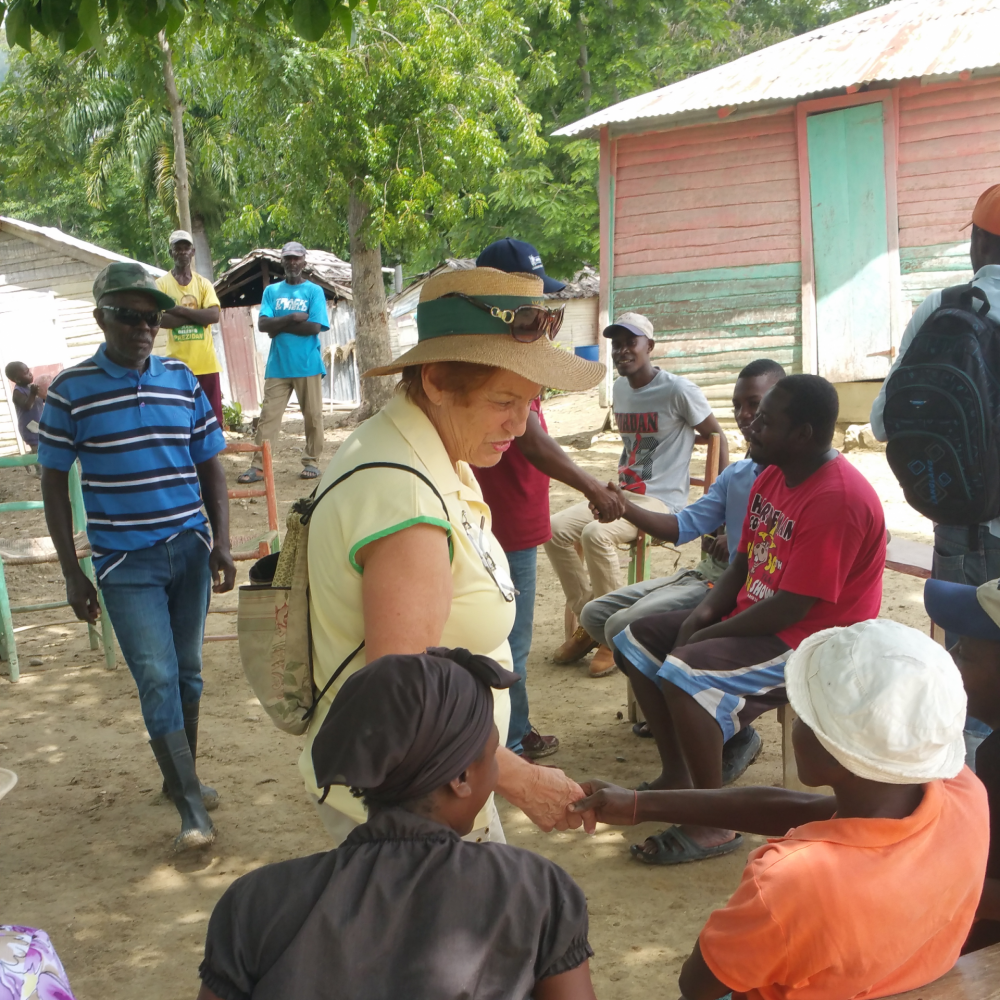
MONDAY.
We visited Thomonde, and beyond to the village of Lascangnite where we have a large implantation of PSF (Projet Securite Familliale) and where the family of one of our agronomists has lived since 1927. Don’t believe much has changed since then!!!
The challenge to get there would have tested the best of any cross-country rally participant in any country, with mud, gorges, mountains and rivers to slog through, climb, and cross. Without our expert driver we would never have made it! I have to say there were a few in the car who had to hide their faces through several perilous situations, and even I, at one time, had to close my eyes and pray!
Not much has changed in this predominately sugar cane country – the cane is high, and many of the small sugar mills are still worked with oxen. There is nothing else.
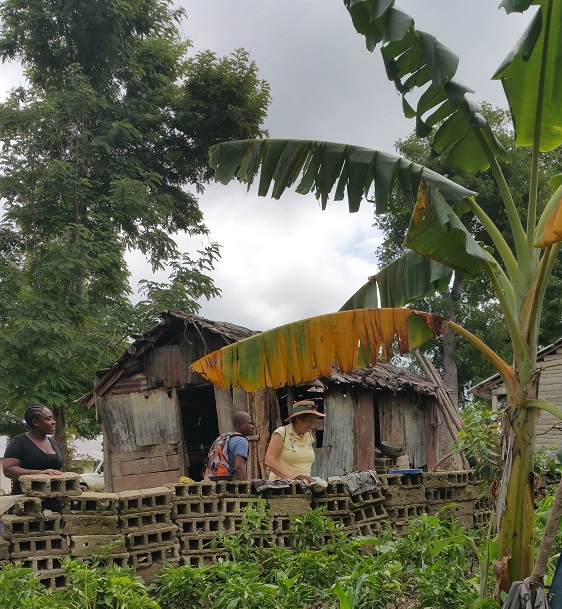
All the children, no matter what age, have to walk down the mountain each day to school, little ones in the mornings and the older ones the afternoons. This is a 2 ½ hr. walk.
With our Food Security Program we have been able to introduce a variety of food alternatives, supplying seeds and tools, and of course the special addition of goats, which allow the families to expand their nutrition and produce production to take to market. One very proud lady showed us her little garden where she has had great success with peppers, both large and small, hot and mild. She’s been so successful selling them at the market she said she would like to concentrate only on these for the time being. I’m sure she will also make a success of the next lot of seeds we supply as well. I was very proud to receive a small bag of her peppers as a gift when we left.
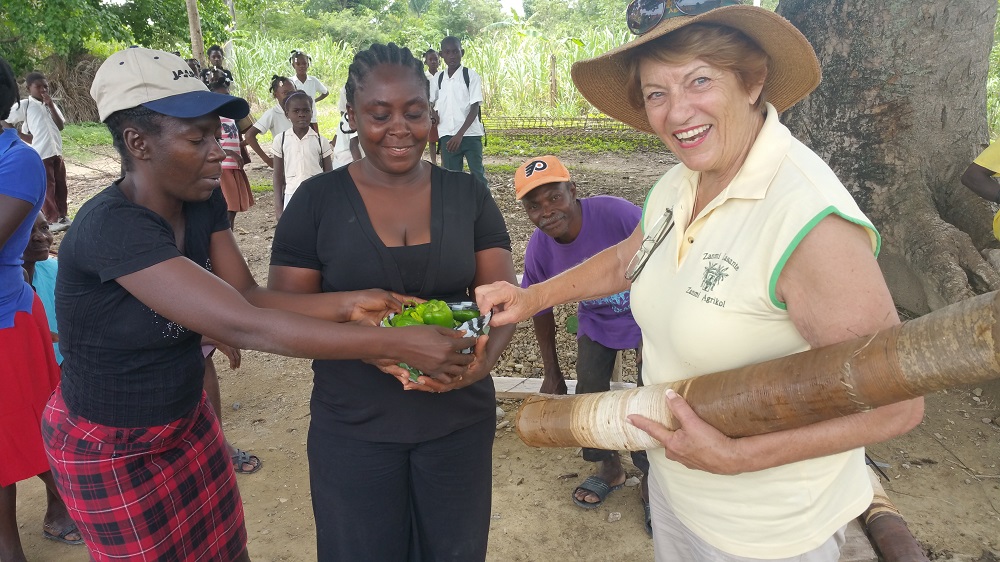
The meeting of all the families was held under an enormous sablier tree, where they related their successes or failures, and of course to tell me what they still needed most. At every stop, the primitive and unhealthy housing situation was on top of their lists. It is true and very evident that help is needed. Most dwellings are still made of palm trees split and tacked together to make a wall, and the roofing of doubled banana leaves. Floors are still swept mud, but all are neat and tidy. Some of the more well off families are starting to install tin roofs and this is really becoming a mark of prosperity!

As we gathered together under the sablier, we were treated to a demonstration on how the covering for ‘rapadou’ is made. Rapadou is the raw sugar hot from the mills, contained in a long cylindrical tube made from dried pressed palm leaves and sewn up with peat thread.
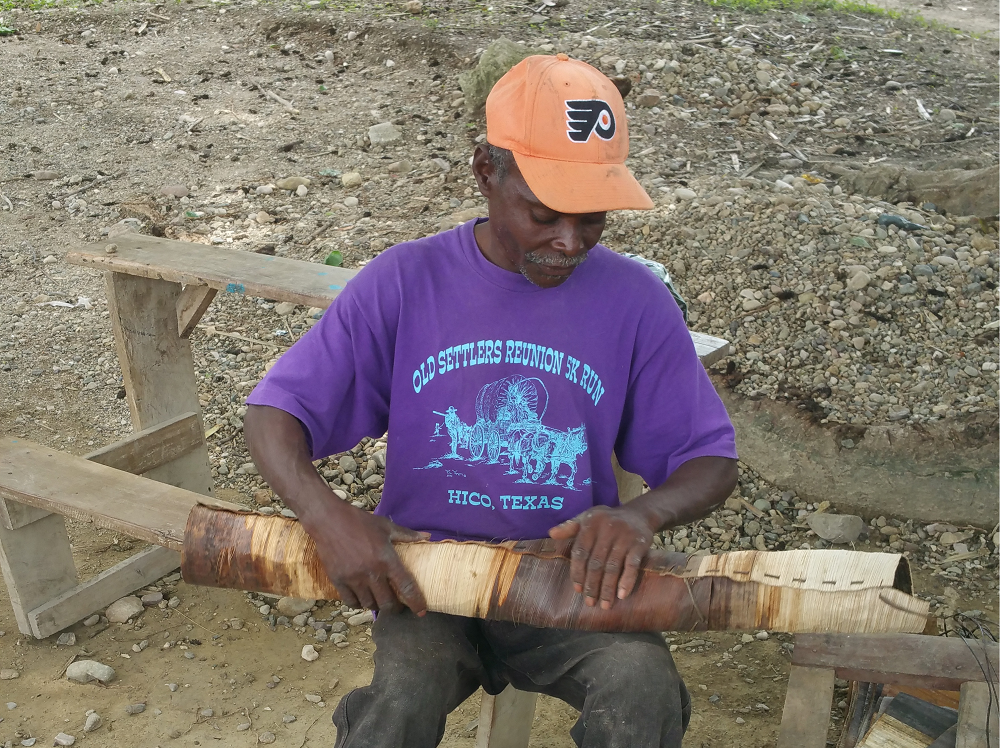
The elderly gentleman who showed us how to do this has been sewing cylinders all his life, and we were presented with a rapadou which was cut up into pieces when we got home and a piece was given to all who participated in the days’ adventures!
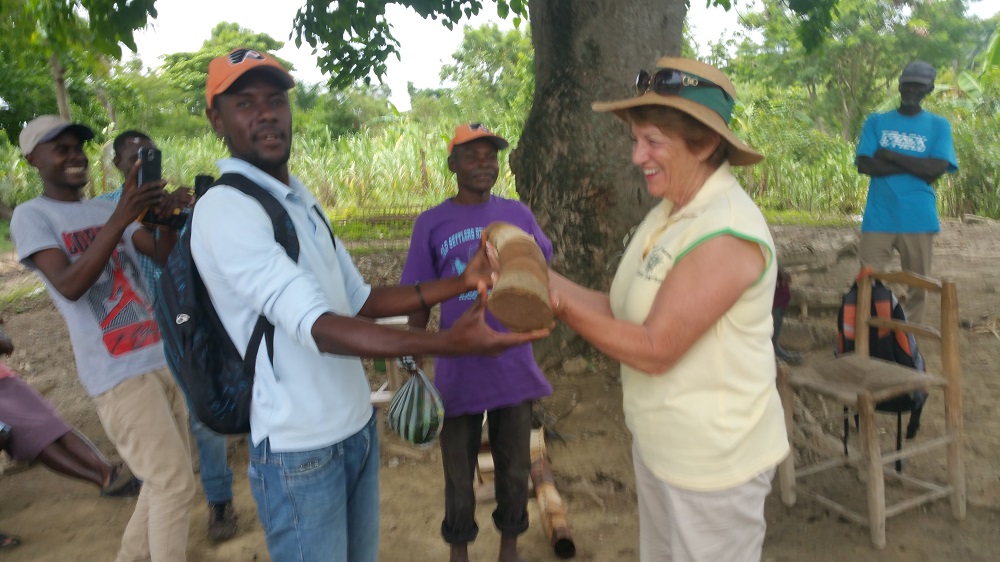
This particular village has the great advantage of having a spring and captive water source in the center of the village, but of course no electricity and no sanitation. All the participants tell us how happy they are to be part of the Family Security Program, and how they hope it will continue, and will grow bigger each year to help more and more people. Let’s hope we can help them to grow more, and the program to grow itself!
